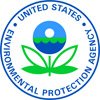
LENEXA, KAN. (MAY 14, 2024) – The U.S. Environmental Protection Agency (EPA) announced the availability of $2,883,000 in funding through the Sewer Overflow and Stormwater Reuse Municipal Grant program to help communities address stormwater and sewer infrastructure needs in Region 7. Safely managing stormwater is critical to preventing contaminants, including untreated sewage, from polluting waterways.
EPA’s grant funding is available to states to support projects in cities and towns that will strengthen their stormwater collection systems to be more resilient against increasingly intense rain events made worse by the climate crisis.
Funding allotments available to Region 7 states are as follows:
- Iowa: $326,000
- Kansas: $461,000
- Missouri: $1,567,000
- Nebraska: $529,000
“This funding is an opportunity for small and financially struggling communities to obtain no-cost grants for critical stormwater and sewer system needs,” said EPA Region 7 Administrator Meg McCollister. “No-cost grants help to ensure that upgrade prices do not get passed on to utility customers, and that’s a win for our community members.”
When rain and floodwaters overrun sewer and stormwater systems, they bypass treatment and transport pollution and sewage directly into creeks, streams, and rivers. These untreated discharges threaten human health, economic prosperity, and ecological function.
Stormwater management is a complex challenge for communities across the country. Through changes made by President Biden’s Bipartisan Infrastructure Law, this grant program will prioritize stormwater infrastructure projects in small and/or financially distressed and disadvantaged communities and prevent cost-share requirements from being passed on to these communities.
Additional funding for stormwater and wastewater upgrades is available through President Biden’s Bipartisan Infrastructure Law and EPA’s Water Infrastructure Finance and Innovation Act (WIFIA) program. Through the Bipartisan Infrastructure Law, EPA is providing $11.7 billion to states to upgrade wastewater infrastructure through the Clean Water State Revolving Fund. Additionally, the seventh round of EPA’s WIFIA financing is available – with $6.5 billion through WIFIA and $1 billion through the State infrastructure financing authority WIFIA (SWIFIA) program.
EPA is currently accepting letters of interest for WIFIA and SWIFIA, a loan program exclusively for state infrastructure financing authority borrowers. Learn more about submitting a letter of interest for a WIFIA loan.
These programs advance President Biden’s Justice40 Initiative, which sets a goal that 40% of the overall benefits of certain federal climate, clean energy, affordable and sustainable housing, and other investments flow to disadvantaged communities that are marginalized by underinvestment and overburdened by pollution.
Learn more about the Sewer Overflow and Stormwater Reuse Municipal Grant program.
Background
Stormwater can be a significant source of water pollution and a public health concern. It can collect various pollutants, including trash, chemicals, oils, and dirt/sediment, and convey them to nearby waterways. When mixed with domestic and industrial wastewater in combined sewers, stormwater can also contribute to combined sewer overflows during heavy storm events.
EPA is working with local and state partners to leverage the resources of the federal government to meet the needs of these communities. In the past, states and communities shared a fixed portion of the costs associated with all projects funded through the Sewer Overflow and Stormwater Reuse Municipal Grant program. The Bipartisan Infrastructure Law changed the program so that 25% of its funds go to available projects in small and/or financially distressed communities; it also limited states’ abilities to pass on the burden of cost sharing to these communities.
To encourage investment in these critical projects, EPA modified the Sewer Overflow and Stormwater Reuse Municipal Grant program so that state grantees are not required to contribute cost-share money for program projects located in small or financially distressed communities. However, grant portions that go to communities other than small or financially distressed ones will include a cost-share requirement.
# # #
Learn more about EPA Region 7
View all Region 7 news releases
Connect with EPA Region 7 on Facebook and Instagram
Follow us on X: @EPARegion7
from EPA News Releases https://ift.tt/aj9A8gm
